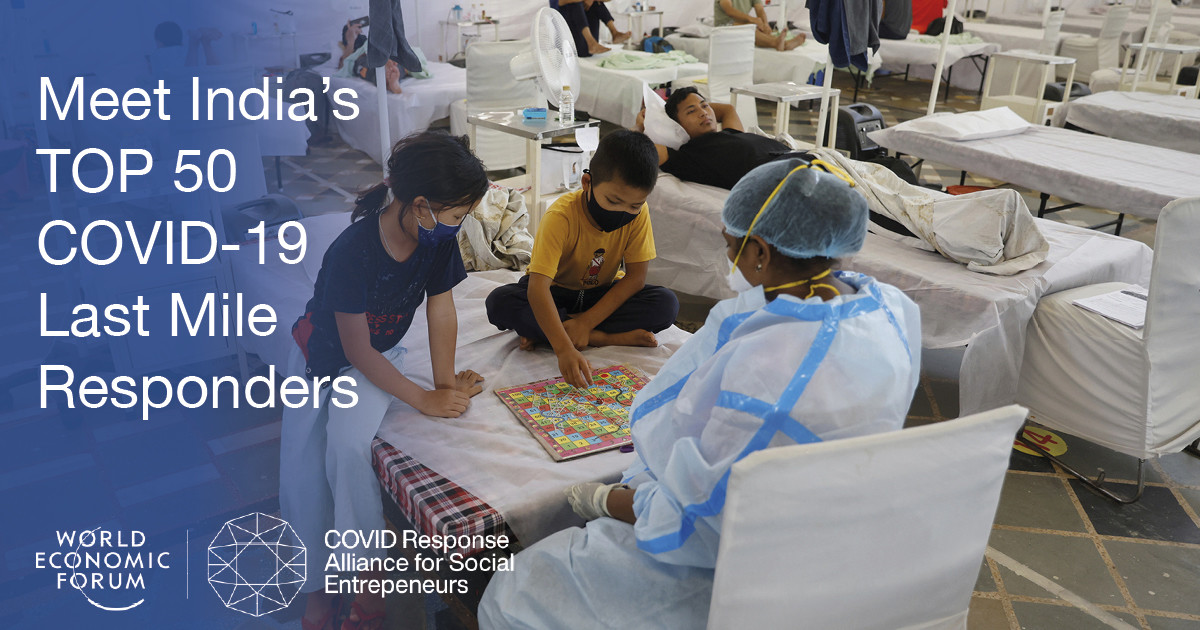COVID-19: What you need to know about the coronavirus pandemic on 4 November
England recorded its highest numbers of cases of COVID-19 in October.
Image: REUTERS/Phil Noble
Explore and monitor how COVID-19 is affecting economies, industries and global issues
Stay up to date:
COVID-19
- This daily news round-up brings you a selection of the latest news and updates on the COVID-19 coronavirus pandemic, as well as tips and tools to help you stay informed and protected.
- Top stories: WHO approves Indian vaccine; Germany reports daily record for number of new infections; Chinese ports enforce strict travel restrictions as a new domestic outbreak takes hold.
1. How COVID-19 is affecting the globe
Confirmed cases of COVID-19 have passed 248.2 million globally, according to Johns Hopkins University. The number of confirmed deaths has now passed 5.02 million. More than 7.15 billion vaccination doses have been administered globally, according to Our World in Data.
China is on high alert at its ports of entry as strict policies on travel in and out of the country are enforced to reduce COVID-19 risks amid a fresh domestic outbreak, less than 100 days from the start of the Beijing Winter Olympics. The National Immigration Administration said on Thursday it would continue to guide citizens not to go abroad for non-urgent and non-essential reasons.
COVID-19 prevalence in England rose to its highest level on record in October, Imperial College London said on Thursday, led by a high numbers of cases in children and a surge in the south-west of the country.
South Korea opened COVID-19 quarantine centres on Thursday to house potentially thousands of teenagers with COVID-19 ahead of the country's gruelling eight-hour college entrance exam in two weeks.
There will be enough COVID-19 vaccines for children by next week, U.S. President Joe Biden said on Wednesday, after the country started the roll-out to children aged 5 to 11. The shots will be available at about 20,000 locations around the country.
Competitors in next year's Boston Marathon must provide proof of a COVID-19 vaccine, organizers said, adding to a growing list of major sport events where inoculation is mandatory for participation.
2. World Health Organization approves Indian vaccine
The World Health Organization (WHO) said it had approved Indian drugmaker Bharat Biotech's COVID-19 vaccine for emergency use, paving the way for the shot to be accepted as a valid vaccine in many poor countries.
"The Technical Advisory Group has determined that the Covaxin vaccine meets WHO standards for protection against COVID-19, that the benefit of the vaccine far outweighs risks and the vaccine can be used," WHO said in a tweet.
The WHO's advisory group was expected to make a decision on Covaxin last week, but asked for additional clarifications from Bharat Biotech before conducting a final risk-benefit assessment for the vaccine's global use.
Covaxin was also reviewed by WHO's Strategic Advisory Group of Experts on Immunization, which recommended its use in two doses, with an interval of four weeks, in all age groups 18 and above.
The emergency use listing would allow Bharat to ship the vaccine to countries that rely on WHO guidance for their regulatory decisions. The nod also means that the shot may be accepted as a valid vaccine for millions of Indians who have received it and want to travel outside the country.
3. Germany reports record daily number of COVID-19 infections
Germany reported 33,949 new COVID-19 infections, the highest daily increase since the start of the pandemic, ahead of a two-day meeting of state health ministers starting on Thursday.
Countries across Europe have been reporting rises in coronavirus infections, prompting debate over whether to reintroduce restrictions and how to persuade more people to get vaccinated.
The daily number of cases was likely inflated by a public holiday in parts of Germany on Monday that led to a delay in data-gathering. The previous record was on 18 December, with 33,777 cases.
Helge Braun, chief of staff to acting Chancellor Angela Merkel, said that German states needed to make faster progress in giving older people booster shots.
"That should have happened long ago," he told broadcaster ZDF on Thursday.
As of Wednesday, only 6.7% of people over 60 in Germany had received a booster shot, according to data from the Robert Koch Institute for infectious diseases.
Older people were also more likely to be hospitalized with COVID-19. The number of infected people in hospital stood at 3.62 per 100,000 on Wednesday - up from 1.65 in early October - but at 8.27 per 100,000 for those over 60.
India’s leading COVID-19 last-mile responders
Don't miss any update on this topic
Create a free account and access your personalized content collection with our latest publications and analyses.
License and Republishing
World Economic Forum articles may be republished in accordance with the Creative Commons Attribution-NonCommercial-NoDerivatives 4.0 International Public License, and in accordance with our Terms of Use.
The views expressed in this article are those of the author alone and not the World Economic Forum.
Forum Stories newsletter
Bringing you weekly curated insights and analysis on the global issues that matter.
More on Health and Healthcare SystemsSee all
Shyam Bishen
June 20, 2025
Mamta Murthi and Sania Nishtar
June 19, 2025
Naoko Tochibayashi and Mizuho Ota
June 18, 2025
Gaurav Ghewade
June 17, 2025
Gareth Francis
June 12, 2025





